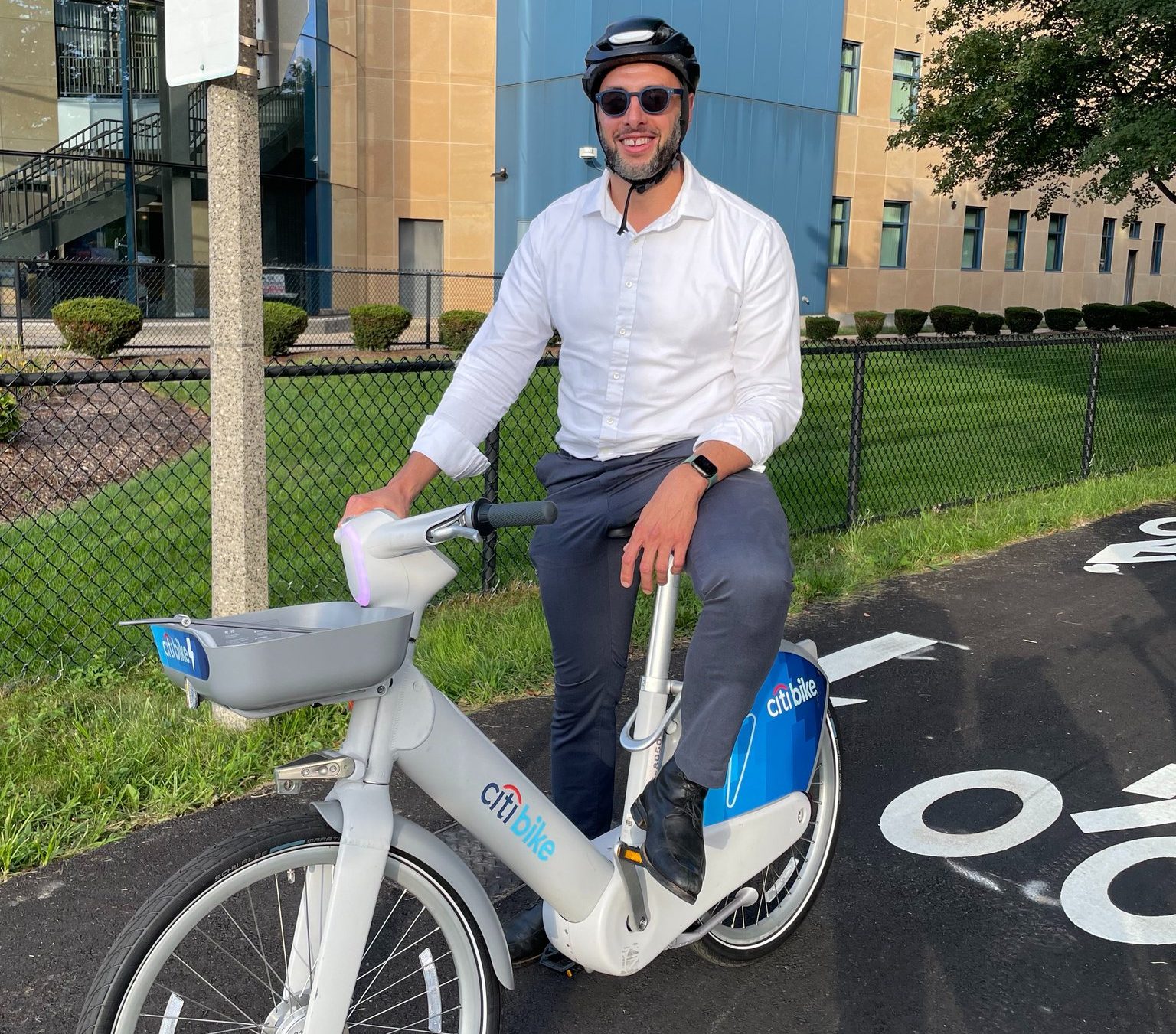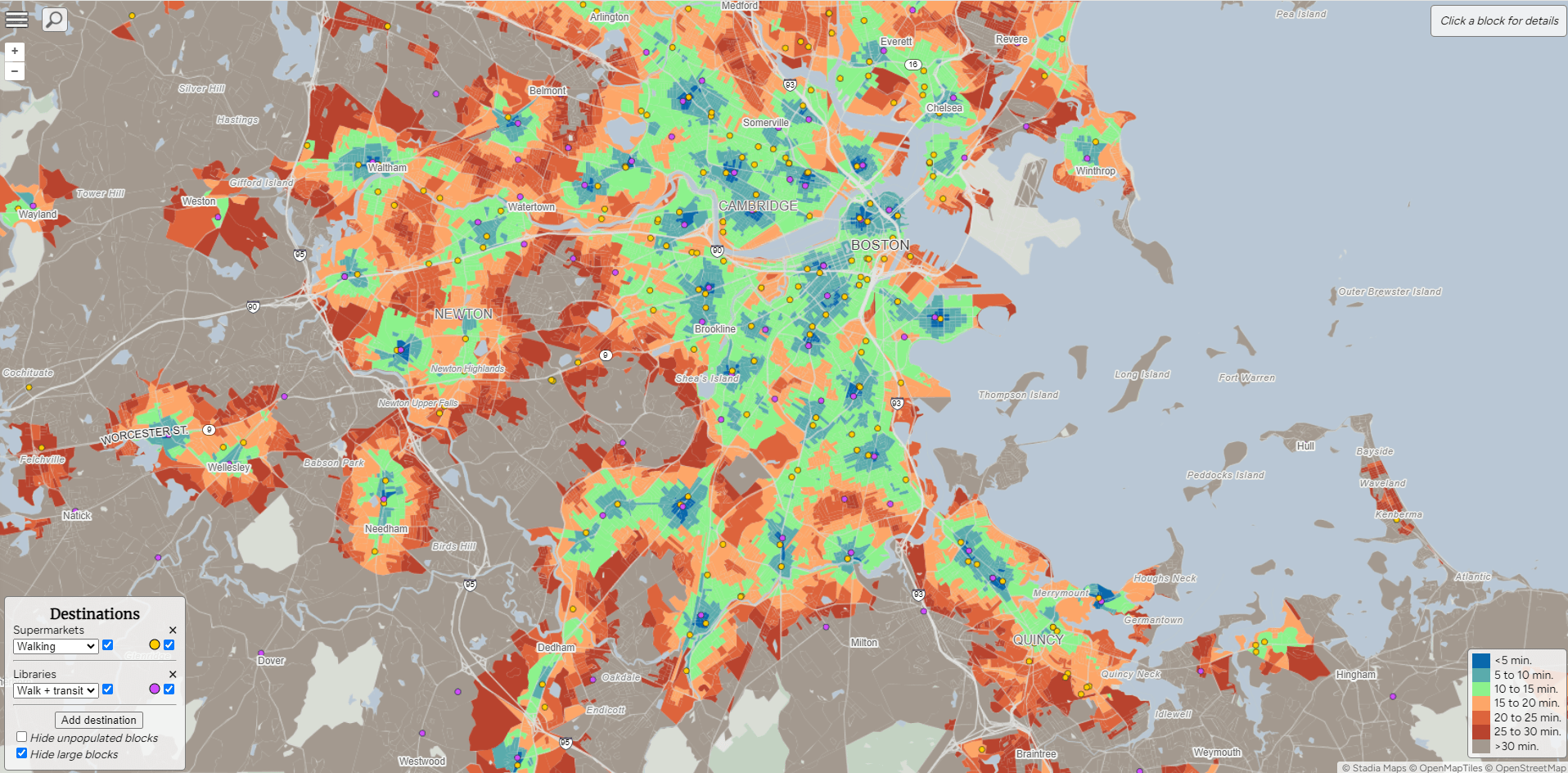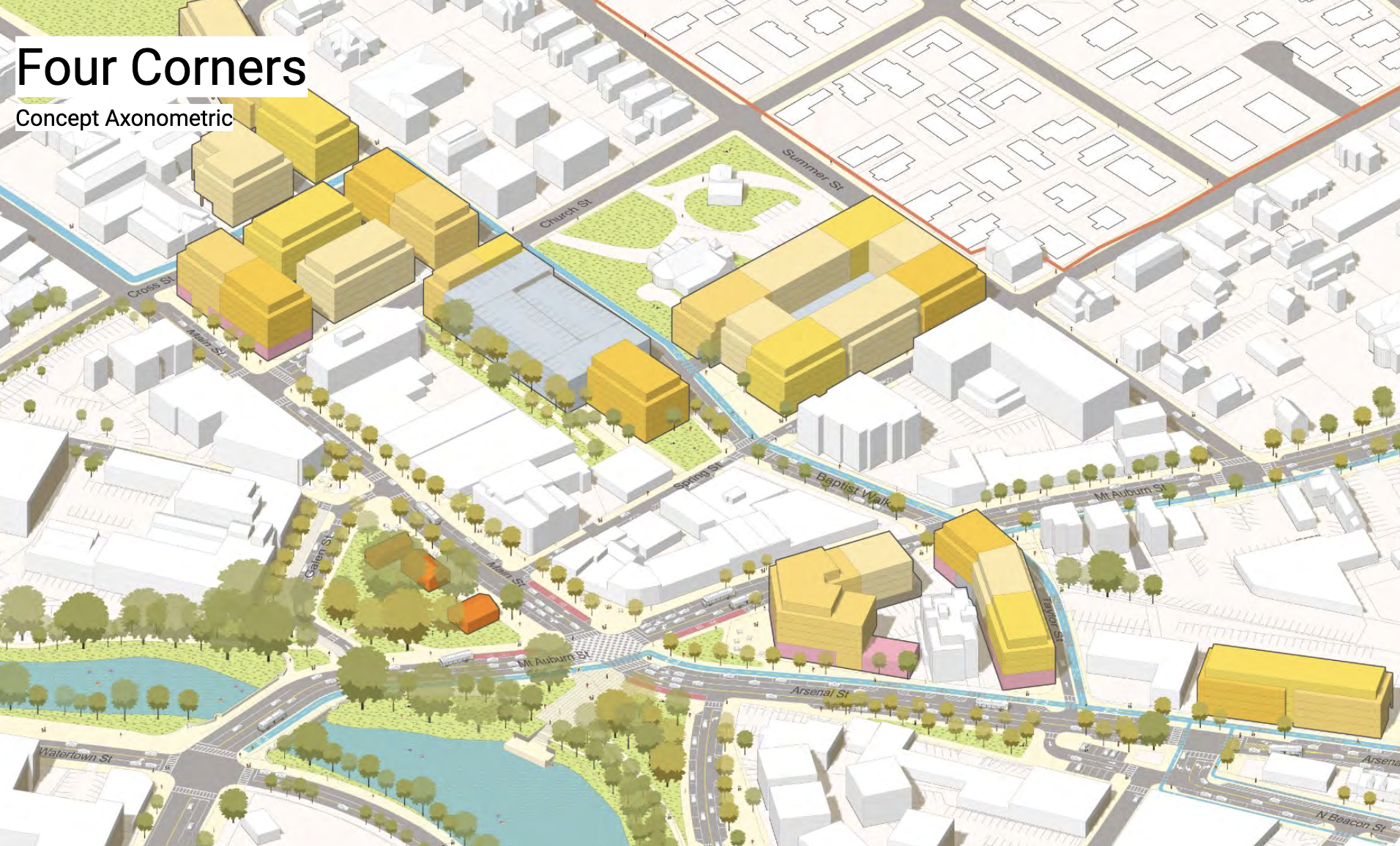On Monday evening, Boston's Chief of Streets, Jascha Franklin-Hodge, posted a photo on Twitter (above) that showed him riding a new electric pedal-assist bike from Citi Bike, New York City's bikesharing system.
"Showing some of our bike paths to a visitor from out-of-town," he tweeted.
This particular "visitor from out-of-town" is newsworthy because New York's Citi Bike system is operated by Lyft, the same company that manages the Bluebikes system here in the Boston region.
Lyft has been rolling out new pedal-assist e-bikes in numerous bikesharing systems that it operates across the country, including Citi Bike, Divvy in Chicago, and Nice Ride in Minneapolis. In Portland, Ore., Lyft has converted its entire fleet so that every bike in the system includes a pedal-assist electric motor.
But to date, there are still no e-bikes in the Bluebikes system of greater Boston.
Unlike some of those other bikesharing networks, the Bluebikes system is jointly owned by the Cities of Boston, Cambridge, Somerville, and Everett, and the Town of Brookline. Lyft handles the system’s day-to-day operations, and the manufacturing of the bikes and docks, but these municipalities own the bikes and the stations.
That means that if the Bluebikes system is going to adopt pedal-assist electric bikes, it’s up to the cities and towns in the Bluebikes system to buy those e-bikes, and add them to our publicly-owned bikesharing fleet.
StreetsblogMASS reached out to Franklin-Hodge to ask for more details about what a Citi Bike was doing in Boston.
"Lyft brought an electric Citi Bike up for a few weeks," he explained via text message. "This is their newest design... We're looking at what it would take to add e-bikes to the Bluebikes system, and I wanted to try out the hardware."
Two years ago, Boston officials had been publicly skeptical of buying e-bikes for our bikesharing system. The first generation of shared e-bikes had issues with problems like improperly installed brakes and battery theft. And until this summer, there was still no formal legal definition and classification for pedal-assist electric bicycles in Massachusetts state law.
But newer iterations of Lyft's e-bike seem to have ironed out some of those technical issues, and this year's transportation bond legislation formally defined and legalized “Class 1” and “Class 2” e-bikes, which are pedal- and throttle-assisted electric bikes that assist the rider at speeds up to 20 miles per hour.
Boston officials have also expressed concern about the cost and equity impacts of adding more-expensive e-bikes to the bikesharing fleet. In New York, riding an e-bike costs an extra 23 cents per minute for non-members, or 15 cents per minute for members.
Those additional charges can more than double the cost of a bikeshare ride for a 15-minute trip, although advocates note that the additional costs might be worth it for people who otherwise wouldn't be able to ride a bike without some assistance from an electric motor.





